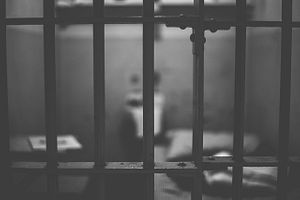Last year the Japanese government executed the highest number of prisoners in a single year since the death penalty resumed in 1993 after a five year pause.
Japan is one of two developed democracies, the United States being the other, that continues to use the death penalty. But unlike the United States, the death penalty in Japan is neglected by the media and thus dodges a heated debate.
Despite international scrutiny, Japan’s reluctance to abolish the death penalty and the execution method of hanging continues to draw protest by human rights advocates.
In Japan, capital punishment is usually reserved for the most malicious and remorseless homicides. But as a discretionary system there are 18 crimes punishable by death that don’t have to end in death. This includes treason, attempted murder, armed robbery and kidnap. Sentencing is dependent on the crime’s impact on Japanese society and minors are not excused from execution.
The Ministry of Justice justifies execution based on a yearly opinion poll that showing an “overwhelming” majority and boasting as high as 86 percent support in 2015.
Some academics believe the level of support for the death penalty isn’t as high as the government makes it out to be. Dr. Mai Sato is an expert in Japan’s criminal justice system and a researcher at Australia National University. She points out the government administered survey is far from objective, with sampling errors that are left uncorrected and results taken at face value. She argues the government should tailor questions to ask whether the public would accept or tolerate abolition instead of if the public support the death penalty.
Sato’s research shows that if people have access to transparent information about capital punishment their support declines. “Japanese people know very little about the death penalty which makes support based on ignorance, the lack of information or misinformation” she explains. ”There are arguments that Japan isn’t really ready to move toward abolition but that isn’t the case. The retentionists would accept abolition if the government were to show leadership.”
Until 2009 the names of executed prisoners were not publicly revealed. In the past one line in the newspaper would be printed without giving out names. With the death penalty system shrouded in secrecy, Sato believes that the government reveals so little in fear of public scrutiny. “With such little demand from media or public to disclose information – why would they?”
Japan has signed the International Covenant on Civil and Political Rights (ICCPR) in 1978 which obliges the government to report to the UN Human Rights Committee to periodically explain why they have not abolished the death penalty.
But Sato says a resolution isn’t getting closer. “The UN and Japanese government have diametrically opposed approaches stemming from human rights and public opinion” she said.
Amnesty International considers the death penalty the ultimate infringement of human rights. Japanese death row inmates are only notified on the day of the execution, normally one hour or two before. They don’t have time to contact lawyers or family members. Families are informed after the execution.
The Japanese government justifies this for the mental health of the prisoner. They argue that if prisoners knew in advance they would be unstable and meeting with family members would be too painful.
Sato notes that the government is likely to put on hold any executions as not to tarnish the beginning of the Reiwa imperial era and prevent negative publicity for the 2020 Tokyo Olympics.

































